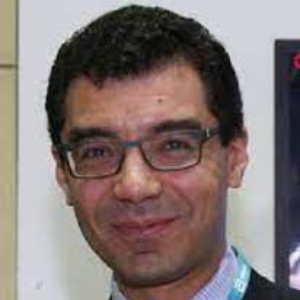Title : Pharmaco invasive strategy for STEMI reperfusion in North African countries
Abstract:
Primary percutaneous coronary intervention (pPCI) is the current gold standard in ST-elevation myocardial infarction (STEMI) management. Pharmacoinvasive strategy (PS) in STEMI consists in the use in a timely manner of pharmacological fibrinolysis for STEMI when pPCI is not immediately available. In countries where access to pPCI for STEMI is not the standard of care in all regions either because of long distances or because of the lack of facilities, PS is a very interesting alternative. In clinical trials, such as the STREAM trial, PS implementation led to early and long term outcomes that were comparable to those with pPCI. North African countries are among those with limited interventional cardiology facilities. Besides, patients presenting for STEMI in these countries have a particular coronary risk profile with an alarmingly high prevalence of diabetes mellitus and tobacco smoking. Furthermore, mass awareness campaigns about healthy lifestyle and attitudes to adopt facing acute chest pain are lacking. First attempts to put in place STEMI reperfusion programs started with the wide use of fibrinolytic agents in the prehospital setting with in-hospital mortality rates that were around 10 to 12%. Invasive coronary angiography was performed several hours or days after the acute phase. Outcomes started to improve when fibrinolysis, especially using fibrinospecific agent with a back-up transfer to centers with pPCI platform was used. In-hospital mortality rate dropped to 8% between 2000 and 2006. In our single center experience in Monastir, in-hospital mortality rate dropped from 12% in the late 90’s to 7% then to nearly 5% in 2016. The FAST-MI Tunisia registry was sponsored by the Tunisian Society of Cardiology and included 459 consecutive patients from 17 centers with or without pPCI facilities. Data published recently confirmed the high coronary risk profile in Tunisian patients and the positive trend toward lower early mortality rates (<5%) in the last years by the implementation of PS. Ultimately, as in other emerging countries with limited resources, implementation of PS in North African countries let to better STEMI outcomes.
Audience Take Away:
• Data about the epidemiology of coronary artery disease in North African countries, which are very scarce in the literature, are exposed
• Audience from emerging countries will be introduced to strategies for STEMI reperfusion in countries like Tunisia and Algeria. It is indeed very interesting to see to what extent the implementation of pharmacoinvasive strategy in Tunisia improved STEMI prognosis
• Logistics of care and practical aspects of the implementation of the PS in these countries will be exposed



